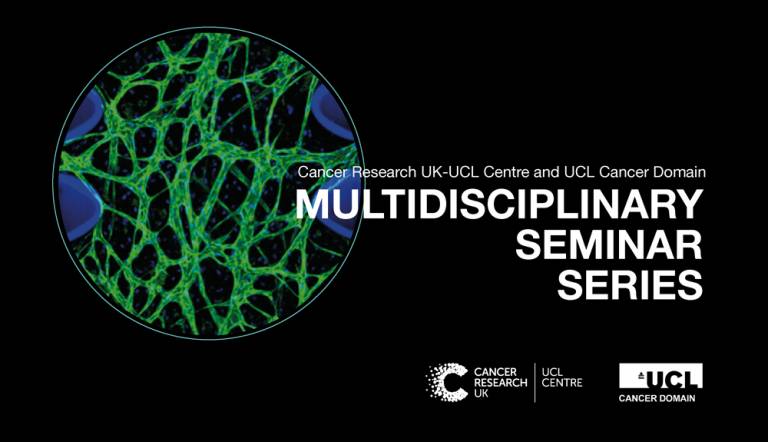CRUK-UCL and Cancer Domain Multidisciplinary Seminar Series
12 September 2019, 12:00 pm–1:00 pm

Dr Emad Moeendarbary, UCL Department of Mechanical Engineering and Dr Fabian Spill, School of Mathematics, University of Birmingham, present: 'Microvasculature Mechanics: From in-vitro microfluidic models to computational simulations.'
Event Information
Open to
- All
Organiser
-
CRUK-UCL Centre
Location
-
Courtyard CafePaul O'Gorman Building72 Huntley StreetLondonWC1E 6DDUnited Kingdom
With advances in microfluidic technologies and computational modelling we now have the capability to create models of vasculature for studies of function in health and disease. These models have numerous applications ranging from the fundamental study of multi-cellular interactions to screening for new agents to treat disease.
In the first talk we focus on the dynamics of endothelial cells in a two-dimensional monolayer. Here, endothelial cells constantly push and pull on neighbouring cells, leading to forces on VE-cadherin mediated cell-cell junctions. These junctions are highly dynamic, and their rupture may lead to the autonomous formation of gaps in the endothelium.
We present a novel mathematical model that predicts the frequency, lifetime and size of these gaps, and validate the predictions with experiments of HUVEC monolayers. We find that gaps occur more often at the vertices of three or more cells, as opposed to the borders between two cells. Interestingly, cancer cells follow this trend and primarily extravasate at the vertices. Notably, they do so even when they first arrest on the two cell border, where they subsequently typically migrate towards the endothelial vertices. This indicates that the cancer cells exploit the autonomously forming gaps, and do not necessarily rely on signalling to the endothelium to initiate gap formation.
In the second talk, we focus on vasculogenesis and present our latest results that unravel the role of intrinsic mechanical factors in the morphogenesis of microvascular networks. While the effects of extrinsic mechanical factors on angiogenesis and vasculogenesis have been investigated extensively, less is known about the role of intrinsic mechanical cues that emerge through dynamic cell-cell and cell-ECM interactions.
We present our novel fluidic platforms enabling us to study the mechanics of self-assembling, 3D, perfusable vascular networks. We found that supporting fibroblasts must physically interact with endothelial cells and the surrounding matrix to generate large-scale functional microvasculature that remains stable for several weeks. Interestingly, the enhanced stability and functionality is accompanied by a drastic increase in vascular tissue stiffness.
A light lunch will be provided after the seminar.
About the Speaker
at UCL Cancer Institute
 Close
Close

